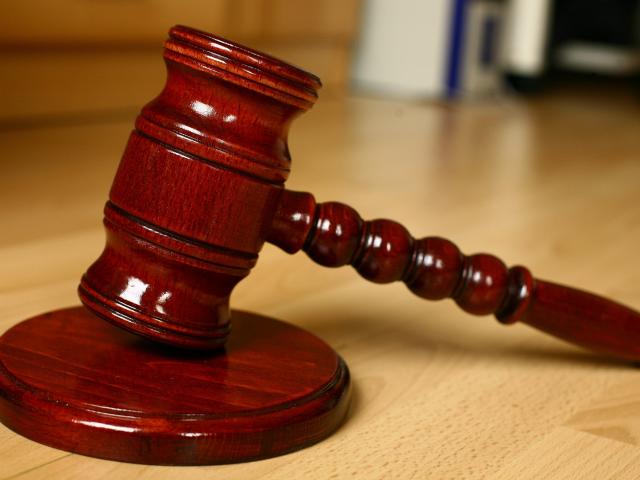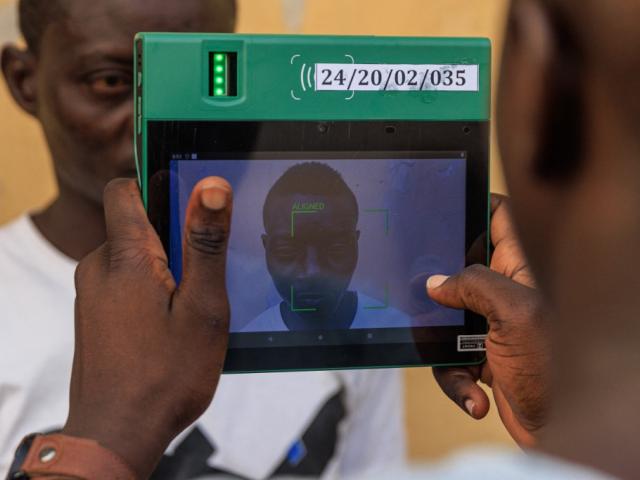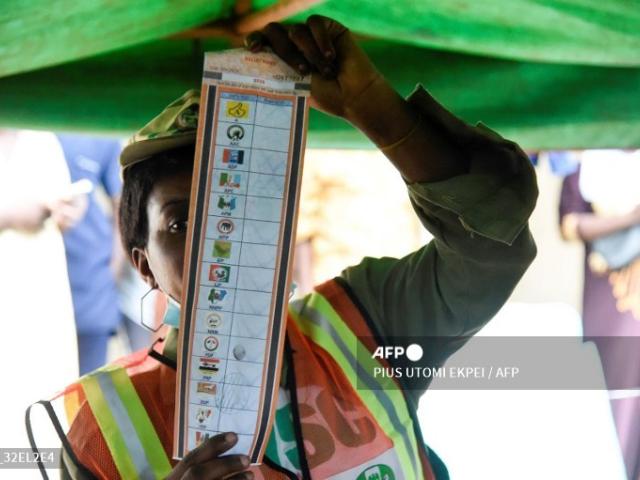After almost nine months, the dust raised by Nigeria’s controversial 2023 general elections has yet to settle. The results of some gubernatorial and legislative elections are still being challenged in courts across the country.
The presidential election, in which the supreme court ruled against the opposition, also remains a subject of public debate.
In the midst of all this, another election day is approaching in three of Nigeria’s 36 states: Kogi, Imo and Bayelsa. Registered voters in these states will go to the polls on 11 November to elect their governors.
These are three of the eight states that have off-cycle governorship elections, meaning voting is not done during the general elections. As part of the 2023 general elections, governorship votes were held in 28 states on 18 March.
Why are the governorship elections out of cycle?
The answer lies in the outcomes of post-election court cases, which either removed governors who had not, in fact, won or ordered new elections months later.
In Kogi state, the incumbent governor, Ibrahim Idris of the Peoples Democratic Party (PDP), was re-elected in 2007. In October that year, a court annulled the election, ruling that the Independent National Electoral Commission (Inec) had wrongly excluded one of the candidates, Abubakar Audu of the All Nigeria Peoples Party (ANPP).
The court ordered a fresh election, with the speaker of the state house of assembly, Clarence Olafemi, as acting governor. Idris won the election.
In Bayelsa state, Timpire Sylva was also elected governor in 2007. Ebitimi Amgbare of the Action Congress of Nigeria (ACN) challenged Sylva’s victory in court. The court ruled that there had been irregularities and ordered a rerun in 2008. Sylva won the second ballot and began his term anew.
In Imo state, the reason is more recent. Emeka Ihedioha of the PDP was elected governor of the state in the 2019 general elections. Hope Uzodinma of the All Progressives Congress (APC), who came fourth in the election, challenged the result. In a controversial ruling in January 2020, Nigeria’s supreme court declared Uzodinma the winner.
Why do the elections in these states matter?
The three states are located in three different geopolitical zones. Kogi, in the North-Central zone, is rich in solid minerals and hosts some of the country’s most significant tourist destinations and historic sites.
The state capital, Lokoja, is a historic city, and is at the confluence of the Niger and Benue rivers. It was the capital of the British Northern Protectorate and the administrative headquarters of the British colonial government after the amalgamation of the northern and southern protectorates to form Nigeria in 1914.
Bayelsa is an oil-rich coastal state located in the South-South geopolitical zone. It occupies the southern tip of Nigeria and has many creeks, lagoons and rivers. Fishing is the main occupation of the people. It has eight local government areas, the least of any state in the country.
Imo state is in the South-East geopolitical zone. In recent years, it has been the theatre of conflict between the Nigerian military and secessionists led by the Indigenous People of Biafra, who wish to re-establish an independent state of Biafra in southeastern Nigeria. Imo is also an oil-producing state and is part of the oil-rich Niger Delta region.
At a meeting with the Inter-agency Consultative Committee on Election Security in late October 2023, Inec chairperson Prof Mahmood Yakubu said it would be difficult to conduct off-cycle elections in Bayelsa, Imo and Kogi.
“The difficult geographical terrain and prevailing insecurity are compounded by negative mobilisation by political actors, especially since the commencement of the campaign in public on 14th July 2023,” he said.
“Our message to politicians is that they should call their candidates and supporters to order. Violence and other undemocratic activities such as vote buying, attacks on election officials, and disruption of the electoral process must stop."
Candidates and the electorate
Inec approved the final list of candidates for the three elections in June.
A press release by the chairperson of the commission’s information and voter education committee, Festus Okoye, noted that the list was approved in line with the Electoral Act 2022 which requires the publication of the list not later than 150 days to election day.
The lists, published on the commission’s website and communication channels, show that 18 registered political parties in the country are fielding candidates in Kogi. The number of parties is 17 in Imo and 16 in Bayelsa.
Most of the candidates in all three states are men. However, two political parties, the Action Democratic Party (ADP) and the Action Peoples Party (APP), have female candidates in Bayelsa state, and one, the Zenith Labour Party (ZLP), in Kogi. No party is fielding a woman for governor in Imo.
The south-eastern state has one person living with a disability, Nneji Achonu, as the governorship candidate of the Labour Party.
In all three states, candidates from the ruling APC and leading opposition parties, such as the PDP and Labour, are the main contenders.
In Kogi, vocal former senator Dino Melaye of the PDP is battling it out with Ododo Ahmed of the APC. Ahmed has the backing of the incumbent governor, Yahaya Bello.
Uzodinma is seeking re-election in Imo state against the PDP’s Nnaemeka Anyanwu and the Labour Party’s Achonu. Considering that Labour won the presidential election in Imo by a wide margin, Achonu is a strong contender.
In Bayelsa, the incumbent, Douye Diri of the PDP, would face former governor Sylva, who is the APC candidate. But a court ruling on 10 October 2023 disqualified Sylva and his name was removed from the list of candidates.
The court ruled that Sylva had been sworn in twice and had served for five years as governor, so it would be against the constitution to allow him to run for another four-year term.
As a result, Inec published an amended list of candidates in which the names of the APC candidate and their running mate were left blank with the remark “court order”.
But Sylva appealed and won, and his name was restored to the list.
The Labour Party candidate, Udengmobofa Eradiri, is thought to have a good chance in Bayelsa.
The list of candidates for Imo has also been amended following a court ruling. Uchechukwu Ishiodu, the Peoples Redemption Party (PRP) candidate, and his running mate, Ahumbe Chiazor, have been added to the list.
Of the three states, Imo has the highest number of registered voters at 2.42 million. Kogi and Bayelsa have 1.93 million and 1.06 million voters, respectively.
Misinformation in the run-up to the elections
Inec has had a “distasteful experience with fake news in the 2023 general elections”, Prof Kunle Ajayi, a national commissioner and member of the electoral body’s information and voter education committee, said.
If “not nipped in the bud, fake news can become the bane of election management in Nigeria”, Ajayi told journalists on 16 October.
Ajayi noted that “the alarming prevalence of misinformation, ‘fake news’, hate speech, and the weaponisation of disinformation has become very worrisome to the commission”. She said that “disinformation is used to provoke religious, political, and tribal sentiments in an already polarised society such as ours, especially, during election season, which is often the leading cause of electoral violence and uprisings.”
As Africa Check saw in the run-up to the general elections, there are examples of false and misleading claims about the condition and economic potential of the states, plans to unlawfully interfere in the conduct of the election, achievements in office and fake endorsements.
Lessons from the 2023 general elections
The disinformation trends Africa Check is seeing ahead of these off-cycle November elections are very similar to what we saw in the run-up to the general elections in February and March.
The difference lies largely in the intensity and diversity of the ethnic and religious narratives that dominated the presidential election.
As before, the Nigerian Fact-checkers Coalition is monitoring the online and offline media space to track, fact-check and debunk false and misleading election-related claims.
The coalition is drawing on its experience of fact-checking the general election and debunking dozens of claims.
Yakubu also said the commission would draw from lessons learnt from the 2023 general elections to improve the conduct of the elections in Kogi, Imo and Bayelsa.
The commission has been widely criticised for hitches in the general election. Some civil society groups have questioned its integrity ahead of the off-cycle elections.
A chance to right the wrongs of the general election
These off-cycle elections have presented Inec with the opportunity to redeem its image and correct the mistakes it made during the general elections, Dr Otive Igbuzor, executive director of the African Centre for Leadership, Strategy and Development, told Africa Check. Igbuzor, a human rights activist, has been monitoring elections for decades.
“Historically, off-cycle elections are usually better conducted than general elections. This is because more resources are concentrated on the three states. For example, there are more security agents available to maintain order during the election. The biggest problem with the 2023 general election was the failure to upload polling unit results to the IRev portal in real time as Inec promised.
“The three states are potentially volatile during elections. There should be a special focus on Kogi and Imo states because of the candidates, the contention, and narratives that are circulating regarding the election,” said Igbuzor, whose organisation conducts programmes and research to empower citizens to transform society.
Kogi, for example, has a history of electoral violence. In the last governorship election in 2019, the Centre for Democracy and Development, a civil society group that monitored the election, recorded 10 deaths and 79 cases of violence and election malpractices across the state’s 21 local government areas.
The incidents recorded included the hijacking of election materials, kidnapping of Inec ad hoc staff, attacking of observers, intimidation of voters and snatching of ballot boxes. There were also incidents of vote buying, multiple voting and underage voting.
Igbuzor believes such incidents are likely in the November 2023 elections in the three states.





Add new comment